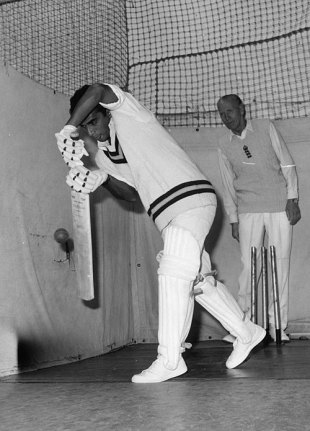 Illustration: Nate Kitch
Illustration: Nate KitchBefitting a surprise election, the manifestos from the main parties contained surprises. Labour is shaking off decades of shyness about nationalisation and tax increases for the rich and for the first time in decades has a policy agenda that is not Tory-lite. The Conservatives, meanwhile, say they are rejecting “the cult of selfish individualism” and “belief in untrammelled free markets”, while adopting the quasi-Marxist idea of an energy price cap.
Despite these significant shifts, myths about the economy refuse to go away and hamper a more productive debate. They concern how the government manages public finances – “tax and spend”, if you will.
The first is that there is an inherent virtue in balancing the books. Conservatives still cling to the idea of eliminating the budget deficit, even if it is with a 10-year delay (2025, as opposed to George Osborne’s original goal of 2015). The budget-balancing myth is so powerful that Labour feels it has to cost its new spending pledges down to the last penny, lest it be accused of fiscal irresponsibility.
However, as Keynes and his followers told us, whether a balanced budget is a good or a bad thing depends on the circumstances. In an overheating economy, deficit spending would be a serious folly. However, in today’s UK economy, whose underlying stagnation has been masked only by the release of excess liquidity on an oceanic scale, some deficit spending may be good – necessary, even.
The second myth is that the UK welfare state is especially large. Conservatives believe that it is bloated out of all proportion and needs to be drastically cut. Even the Labour party partly buys into this idea. Its extra spending pledge on this front is presented as an attempt to reverse the worst of the Tory cuts, rather than as an attempt to expand provision to rebuild the foundation for a decent society.
The reality is the UK welfare state is not large at all. As of 2016, the British welfare state (measured by public social spending) was, at 21.5% of GDP, barely three-quarters of welfare spending in comparably rich countries in Europe – France’s is 31.5% and Denmark’s is 28.7%, for example. The UK welfare state is barely larger than the OECD average (21%), which includes a dozen or so countries such as Mexico, Chile, Turkey and Estonia, which are much poorer and/or have less need for public welfare provision. They have younger populations and stronger extended family networks.
The third myth is that welfare spending is consumption – that it is a drain on the nation’s productive resources and thus has to be minimised. This myth is what Conservative supporters subscribe to when they say that, despite their negative impact, we have to accept cuts in such things as disability benefit, unemployment benefit, child care and free school meals, because we “can’t afford them”. This myth even tints, although doesn’t define, Labour’s view on the welfare state. For example, Labour argues for an expansion of welfare spending, but promises to finance it with current revenue, thereby implicitly admitting that the money that goes into it is consumption that does not add to future output.

‘It is a myth that, despite their negative impact, we have to accept cuts in such things as disability benefit, unemployment benefit, child care and free school meals.’ Photograph: monkeybusinessimages/Getty Images/iStockphoto
However, a lot of welfare spending is investment that pays back more than it costs, through increased productivity in the future. Expenditure on education (especially early learning programmes such as Sure Start), childcare and school meals programmes is an investment in the nation’s future productivity. Unemployment benefit, especially if combined with good publicly funded retraining and job-search programmes, such as in Scandinavia, preserve the human productive capabilities that would otherwise be lost, as we have seen in so many former industrial towns in the UK. Increased spending on disability benefits and care for older people helps carers to have more time and less stress, making them more productive workers.
The last myth is that tax is a burden, which therefore by definition needs to be minimised. The Conservatives are clear about this, proposing to cut corporation tax further to 17%, one of the lowest levels in the rich world. However, even Labour is using the language of “burden” about taxes. In proposing tax increases for the highest income earners and large corporations, Jeremy Corbyn spoke of his belief that “those with the broadest shoulders should bear the greatest burden”.
The last myth is that tax is a burden, which therefore by definition needs to be minimised. The Conservatives are clear about this, proposing to cut corporation tax further to 17%, one of the lowest levels in the rich world. However, even Labour is using the language of “burden” about taxes. In proposing tax increases for the highest income earners and large corporations, Jeremy Corbyn spoke of his belief that “those with the broadest shoulders should bear the greatest burden”.
But would you call the money that you pay for your takeaway curry or Netflix subscription a burden? You wouldn’t, because you recognise that you are getting your curry and TV shows in return. Likewise, you shouldn’t call your taxes a burden because in return you get an array of public services, from education, health and old-age care, through to flood defence and roads to the police and military.
If tax really were a pure burden, all rich individuals and companies would move to Paraguay or Bulgaria, where the top rate of income tax is 10%. Of course, this does not happen because, in those countries, in return for low tax you get poor public services. Conversely, most rich Swedes don’t go into tax exile because of their 60% top income tax rate, because they get a good welfare state and excellent education in return. Japanese and German companies don’t move out of their countries in droves despite some of the highest corporate income tax rates in the world (31% and 30% respectively) because they get good infrastructure, well-educated workers, strong public support for research and development, and well-functioning administrative and legal systems.
Low tax is not in itself a virtue. The question should be whether the government is providing services of satisfactory quality, given the tax receipts, not what the level of tax is.
The British debate on economic policy is finally moving on from the bankrupt neoliberal consensus of the past few decades. But the departure won’t be complete until we do away with the persistent myths about tax and spend.
If tax really were a pure burden, all rich individuals and companies would move to Paraguay or Bulgaria, where the top rate of income tax is 10%. Of course, this does not happen because, in those countries, in return for low tax you get poor public services. Conversely, most rich Swedes don’t go into tax exile because of their 60% top income tax rate, because they get a good welfare state and excellent education in return. Japanese and German companies don’t move out of their countries in droves despite some of the highest corporate income tax rates in the world (31% and 30% respectively) because they get good infrastructure, well-educated workers, strong public support for research and development, and well-functioning administrative and legal systems.
Low tax is not in itself a virtue. The question should be whether the government is providing services of satisfactory quality, given the tax receipts, not what the level of tax is.
The British debate on economic policy is finally moving on from the bankrupt neoliberal consensus of the past few decades. But the departure won’t be complete until we do away with the persistent myths about tax and spend.
